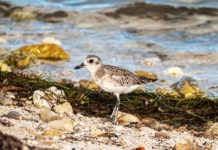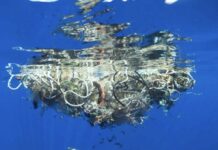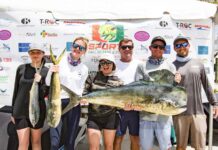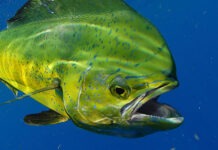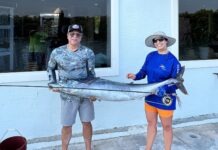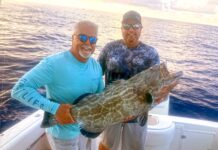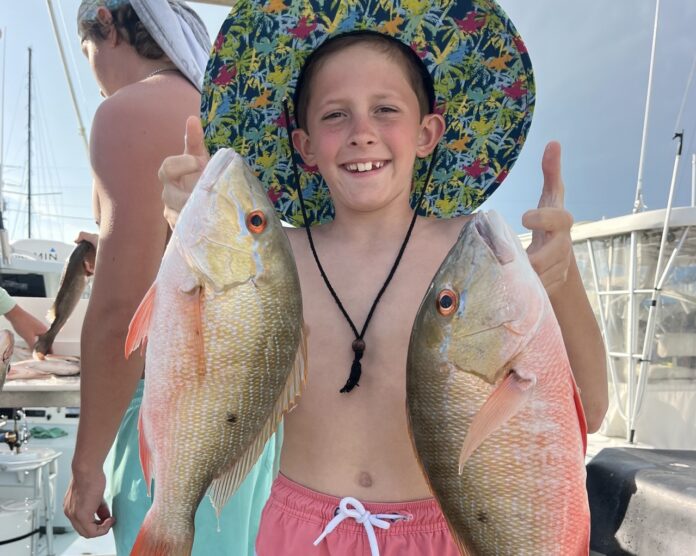
When we’re out enjoying a day on the water, more often than not we encounter other boaters and anglers. You might find yourself wondering, how close is too close to another fishing group? Who has the right of way when trolling a weed line? If a boat is drifting on a wreck, is there room for two? How many fish are too many to harvest, regardless of regulations? As the Florida Keys swing into our busy season, I wanted to tackle some of these ethics and etiquette topics.
We all love fishing the reef, and during specific times of the year, certain areas produce more fish. It is a big ocean and there is plenty of reef to go around. If you see a boat fishing in an area you had your sights set on, write it off and head to your next spot. When moving between spots, keep in mind that most boats fishing the reef have a chum bag and chum slick out behind their vessel. Running through someone’s chum slick will result in unfriendly hand gestures and vulgar language being shouted in your direction.
When you’re offshore targeting mahi and cross paths with an oncoming vessel on a weed line, don’t be hard-headed. Use common sense, be the bigger person and just go around the other boat. It isn’t worth getting into a heated argument on the vast ocean over a few hundred-foot span of weed line. If another boater is drifting over your favorite wreck, get in line with the drift. Give the other vessel plenty of room and by all means, do not cut them off on their drift. Remember, mutton snapper don’t necessarily hold tight to a wreck. They commonly patrol the sand on the outskirts of the wreck, so don’t get fixated on staying directly on the structure.
No matter where you call home, I guarantee there has been a significant decline in the fishery that you grew up fishing. Growing up in the Northeast, the fishery was so abundant that we would catch dozens of fluke on a daily basis. We didn’t keep every fish we landed, which helped boost the local populations and led to tons of action on our next fishing adventure.
Unfortunately, now it is almost impossible to catch two legal fluke in a day just 30 years later. The story here in the Florida Keys is no different. Catches are getting smaller and less frequent. If you don’t believe me, just speak to one of the many local captains who were born and raised here and they will tell you the same tale. They will tell you of the days when they would catch bull mahi on a daily basis and mutton snapper on every wreck.
Lately, there is growing concern and frustration among our local angling community regarding the harvest of the underregulated yellow jack fishery on charters. As many of us know, this time of year the bridges throughout the Middle and Lower Keys are thriving with yellow jacks. There is no size limit on these fish, and anglers are theoretically allowed up to 100 pounds per person per day, as is the case with any “unregulated” species.
This is where the ethical issue arises of how many fish you should keep. Just because they are biting, doesn’t mean you need to harvest all 100 pounds of a certain species to have a good day on the water. If we want a healthy fishery in the future, now is the time to catch our dinner and release the rest to grow and continue to spawn. If you can’t reasonably filet, preserve and/or eat the fish you’re pulling out of the ice box after a charter with your recreational party, you don’t have any business taking that many. There’s no need to “sink the boat” just for a picture.
Just like many charter fishermen in this town, I want to ensure that our fishery can support the trade for my children and grandchildren. And if you doubt where the road leads if anglers take advantage and over-harvest a species, the list of examples goes on and on, everywhere in the world. Here in the Keys, look at the case of goliath grouper, hogfish or blackfin tuna, just to name a few.
From all of us here in the Florida Keys, help us protect our valuable resources and ensure the fishery is sustainable for future generations. As you head out on your next trip, remember to be respectful of other boaters and anglers and consider what it takes to keep a sustainable fishery. And as always, enjoy the fight our fish have to offer.











